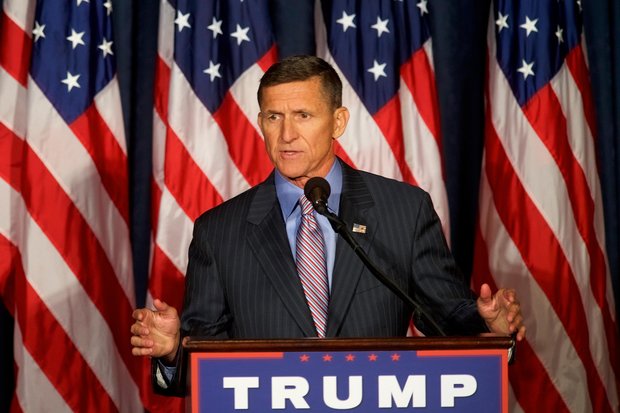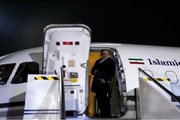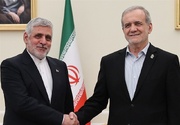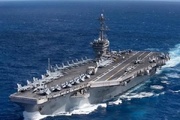He is appointed as national security adviser by US president-elect Donald Trump, a position which does not need Senate’s confirmation. He was also head of defense intelligence agency at the pentagon for two years during Obama’s administration.
His viewpoints as a key person in new US foreign policy are of significance. He has very controversial and critical ideas toward the Middle East and Iran as well as his dialectical and debatable outlook toward Islam and Muslim’s governments. He explicitly points to Islam as a political ideology and a ‘cancer that leads to Islamic terrorism.’ In his view, Muslims’ faith is the root cause of Islamic terrorism.
On his Twitter account he has stated that “Fear of Muslims is RATIONAL” and he shared a very unsourced and biased video about Islam and Muslims, in which there is an arguable claim that Islam wants “80% of people enslaved or exterminated”. As the Guardian has pointed out he does not differentiate between radical Islam and Islam. He means Islam as a whole, as a religion of one fifth of the world population today. The New York Times describes him as a “critical gatekeeper for a president with little experience in military or foreign policy”.
In a debate with Mehdi Hasan on Aljazeera Michael T. Flynn admits that he is in war with Islam, “I've been at war with Islam, or a component of Islam, for the last decade”; and when Hasan asks “when you say you're at war with Islam, you are going after the religion, General” he was clear enough to respond that “If it is – if I believe it is a political ideology, that’s true”. In the same talk Mehdi Hasan tries to convince him that the United States was one of the most important countries that paves the way for terrorism to flourish and become powerful; he pointed to financial backing of terrorist groups, Iraq invasion and the situation of US prisons in Iraq as key components in helping terrorism and at the end of the day Flynn makes a confession that all these elements are created by the United States and it means that a key person in United States army has accepted the US role in empowering the terrorism which is a great problem for today’s world.
In the same interview, Hassan asks him about a confidential document dated 2012 and released later which is an intelligence report talking about radical groups being formed in Iraq and Syria, but the American authorities decide not to react to them and not to prevent their formation in order to follow their own policies in the volatile region. As Hassan insists whether Flynn has been informed, the former general admits that he has been in charge of the report and that the American officials ‘deliberately’ decided to have no reaction to allow the new groups weaken Syrian President Bashar al-Assad’s government. The groups were later proved to ISIL and Al-Nusra groups which have so far committed most brutal and savage atrocities against humanity for last two years.
The New York Times, November 2016 writes about Michael T. Flynn that “he believes Islamist militancy poses an existential threat in one of the most powerful roles in shaping military and foreign policy;” this attitude will defiantly have great impact on his policies toward Middle East and on our country. He also has controversial ideas about Iran’s nuclear issue and Iran-US negotiations. With regard to Iran and Iranians he says: “they're definitely a nation state that has demonstrated a behavior that is unacceptable to international norms and laws, and they don't accept accountability for any of their actions”. He also insists on saying that Iran is going to have nuclear weapon in less than ten years. A claim which is denied by both Iran and international organizations and experts.
The Guardian also wrote about his “hateful rhetoric” toward Muslim community.
A statement by Flynn about Muslims that Guardian quoted from Senator Ron Wyden is: “profoundly un-American as well as damaging to the fight against terrorism and national security”.
His harsh, uninformed and biased rhetoric toward Islam and Muslim community will defiantly affect the new elected president’s practice, as well as the new policies of the US toward Middle East.
After all and regarding all above mentioned points, I believe the new American policies in Middle East are going to be somehow vague and indistinct. On one hand, we have good relations of elected president and some members of his suggested cabinet with Russia and President Putin; on the other hand, we have some appointed members just like Michael T. Flynn with radical viewpoints toward Middle East. Regarding the critical condition of the Middle East today, and the very significant role of Iran in Syria and the whole region what is going on, is a big concern. Nor the good relation with Russia is determinative of the new policies in region, nor the radical behavior toward Muslims and Arab countries of the member of his cabinet. One of the main promises by elected president was and still is partnership with Russia; and Russia position taken in these years toward Syria is in contradiction with US foreign policy! What really Trump is going to do in Middle East? Trump is going to deal with Moscow to combat ISIL but as BBC pointed out this would mean accepting Iran's growing influence in the region. An ironic position taken by new US president is challenging and not clarified. BBC stated that “Mr. Trump wants to focus on one thing: the fight against so-called Islamic State”. Elected president also has chosen a strong backer of the Jewish settlement movement in the occupied West Bank as US ambassador to Israel as BBC stated as another ironic behavior.
Zahra Emamzadeh has done her MA in North American Studies in Tehran University and is a PhD candidate in Communication Studies.

























Your Comment